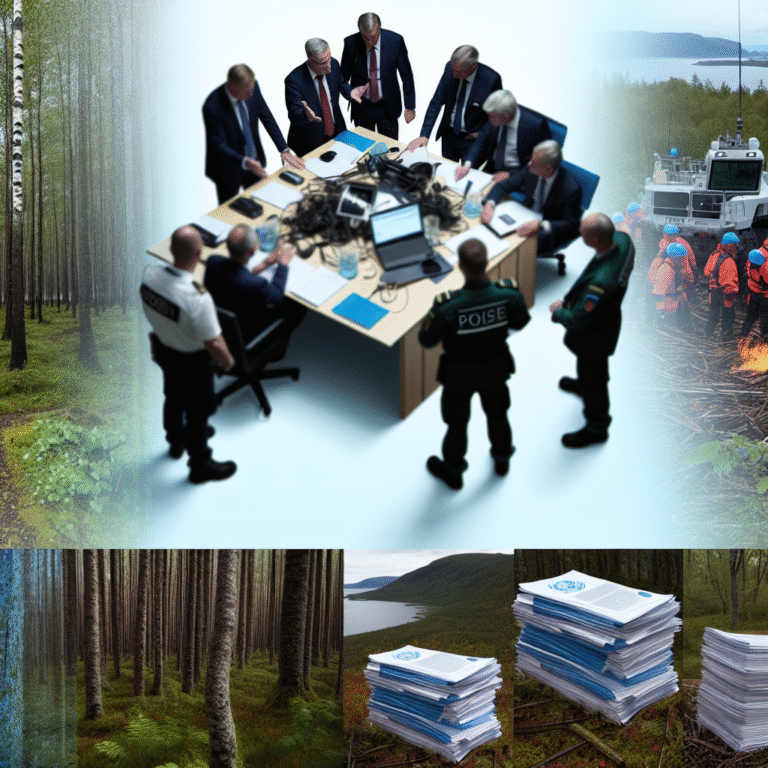New Phase of Global Initiative Aims to Combat Illegal Logging and Timber Trade
A significant step forward in the battle against illegal logging and the illicit trade of tropical timber was announced this week in Rio de Janeiro. INTERPOL, the United Nations Office on Drugs and Crime (UNODC), and the Norwegian government unveiled the third phase of their international cooperation program, aptly named the Law Enforcement Assistance Program to Reduce Tropical Deforestation (LEAP).
Funded by Norway’s International Climate and Forest Initiative (NICFI), this program will bolster efforts in countries across Asia, Latin America, and the Pacific, aiming to dismantle the criminal networks that profit immensely from the illegal timber trade.
A Global Approach to a Pressing Issue
Since its inception in 2018, LEAP has transformed from a focused project on forest law enforcement into a robust global initiative yielding notable strategic and operational outcomes. The program facilitates collaboration among police, prosecutors, environmental authorities, and financial inspectors, encouraging the sharing of information and coordinated joint actions.
According to INTERPOL, operations conducted during the initial phases have uncovered extensive illegal logging activities, exploiting vast tracts of forest and generating millions in revenue from timber acquired through illicit means.
Criminal Exploitation of Forests Continues
INTERPOL Secretary General Valdecy Urquiza underscored the gravity of the situation, labeling illegal logging as one of the most lucrative environmental crimes facing the planet today.
“Criminals are reaping billions from the theft of our forests and the destruction of vital ecosystems,” Urquiza remarked. “To combat this crisis, we need targeted policing and strong partnerships between law enforcement agencies and the private sector.”
The Collaborative Force Against Environmental Crime
UNODC head Ghada Waly echoed these sentiments, emphasizing that environmental crime poses a dual threat to biodiversity and the rule of law.
“Illegal deforestation undermines legal frameworks and fuels organized crime. Together with INTERPOL and Norway, we will ensure that those who profit from environmental destruction are held accountable,” she stated.
Norway’s Commitment to the Cause
Norway’s Climate and Environment Minister Andreas Bjelland Eriksen expressed a firm commitment to tackling forest crime, highlighting its connection to organized crime driven by powerful financial interests.
He noted, “The fight against forest crime is crucial for the preservation of our tropical forests. I am proud to continue our collaboration with INTERPOL and UNODC to strengthen law enforcement and protect these essential ecosystems.”
Targeting Areas of Impact
The upcoming phase of the program will place special emphasis on Brazil, Ecuador, Indonesia, Papua New Guinea, and Peru, also addressing illegal mining activities in the Amazon—a major contributor to deforestation.
As global efforts ramp up, the collaboration among international entities offers a glimmer of hope in halting the relentless assault on the world’s forests.

